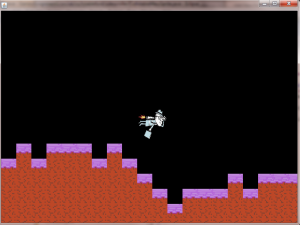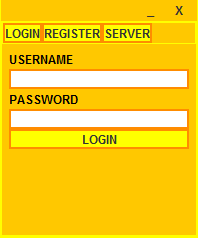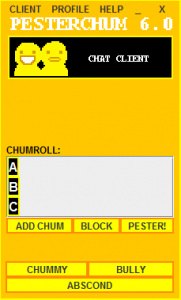I’ve now added my assembly assignment for the LC-3 virtual computer and for C assignment to my GitHub account.
And Pesterchum is coming along nicely, messaging is now implemented and I’m currently working on offline messaging, which sort of works except that the username isn’t displayed properly on the receiving end.
I’ve also been working on something I hoped would be for my games development module assignment, which was to make a “rocket man” go around on screen picking up diamonds and taking them to his space ship. But we’re required to use a “game engine” that the lecturer developed that handles rendering, looping, and collision detection. But it’s very limited and I wanted to make mine a side scroller for a few extra marks so decided to develop my own. But as this cannot be submitted for my assignment it won’t be worked on in the foreseeable future. Currently it has randomly generated terrain, side scrolling is implemented, the “rocket man” is there and gravity is enabled.

This is also on my GitHub under RocketManScroller

